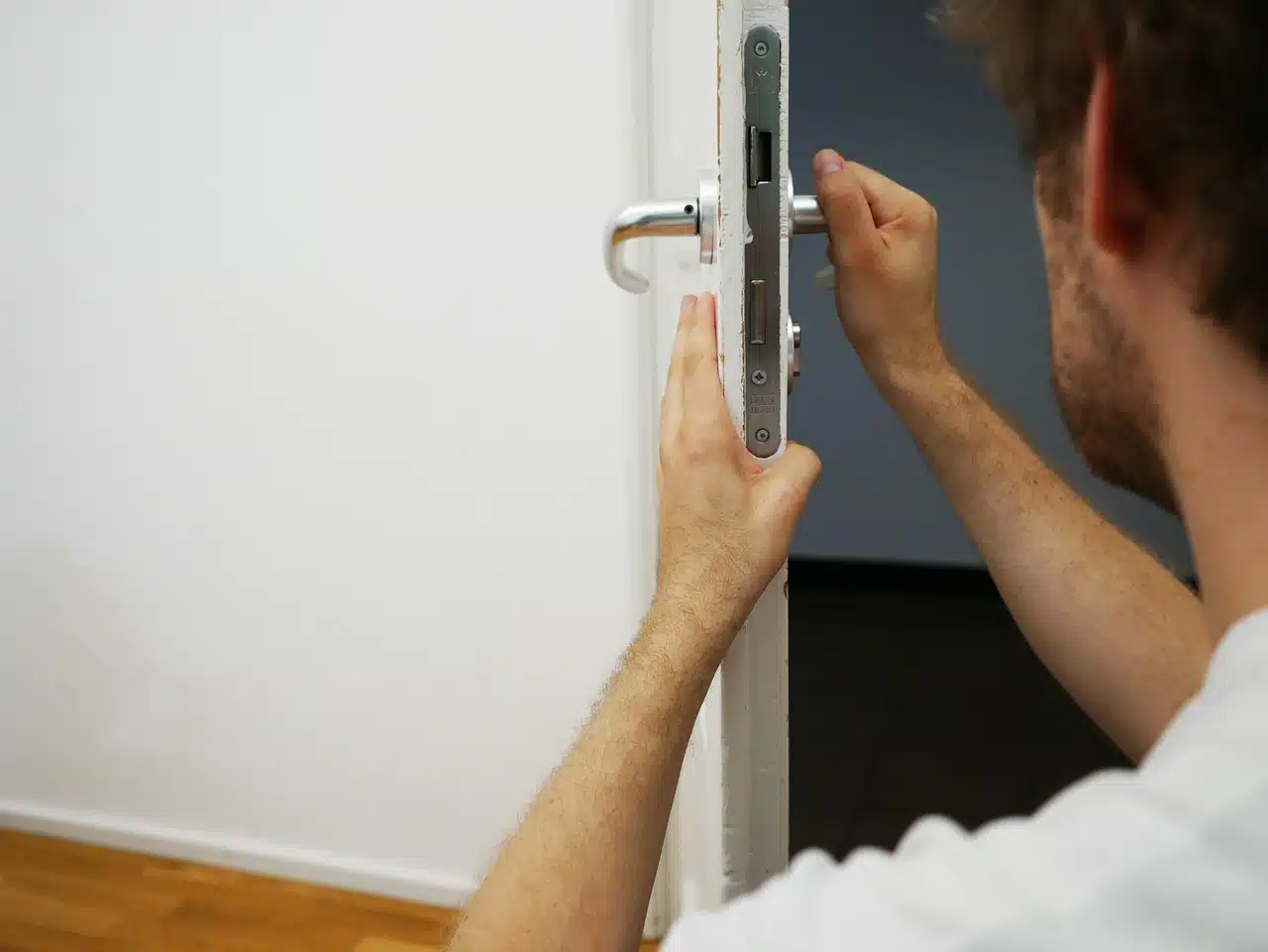
The locksmith has knowledge of installing and repairing locks, duplicating keys, and maintaining security systems.
Locksmith It is something linked to locksmithing : the set of handles, bolts and locks of a property or the place where these types of elements are produced and sold . In this case, the term is used as an adjective.
As a noun, locksmith is the name given to the individual dedicated to the manufacture and/or repair of padlocks , keys, locks and similar objects . Generally, locksmiths work in a local location (the locksmith shop) and at home.
Lock
A lock is a metal mechanism that, once installed, prevents the opening of a door, a drawer, a trunk, etc., without the corresponding key. This is because the lock has latches that can only be opened by matching the appropriate key.
Most doors have locks so that it is possible to lock them and thus prevent someone from opening them without authorization. Locksmiths, in this framework, have the knowledge and tools necessary to place and fix locks.
Locksmith training
The locksmith usually learns his trade by inheritance or through experience. In any case, locksmith courses are taught and notions linked to this work are taught in technical schools.
Locksmith training can vary depending on region and local laws, but in general, there are several ways you can learn your trade:
- Formal education : Some locksmiths choose to attend technical schools or vocational training programs that offer specific courses in locksmithing. These can teach basic and advanced skills related to locks, security systems, opening techniques, among other aspects relevant to the profession;
- On-the-job learning : It is common for them to pick up skills as they work. Serving as apprentices under the supervision of an experienced locksmith allows them to gain experience and knowledge about the profession ;
- Certifications and professional associations : It is also possible to obtain certifications through professional organizations or industry associations. These may require passing exams and demonstrating competence in various areas of locksmithing;
- Self-learning and online resources – With the advancement of technology, there are numerous online resources such as tutorials, videos and forums that allow locksmiths to teach themselves and stay up to date with the latest trends and techniques in the industry;
- Practice and Experience – Locksmithing is a skill that takes time and practice to perfect. As a locksmith gains experience in the field, he or she improves his or her skill and ability to face different challenges.
It is important to mention that locksmithing can involve working with sensitive security systems and protecting clients' privacy . Therefore, in some locations, locksmiths may require a license or meet certain legal requirements to practice the profession.
Common tasks
A locksmith performs various tasks related to the installation, repair and maintenance of locks and security systems. Although they may vary depending on the specialization and needs of the client, below we list some of the most common:

Opening doors is one of the most common activities of locksmiths.
- door opening : they are trained to open doors that have been left closed accidentally or in emergencies, such as when someone is trapped inside a room or loses their keys ;
- changing and installing locks : installing new locks on doors, windows, safes and other places where security is required. They can also change damaged or outdated locks to improve security;
- duplicate keys : so that owners have additional copies in case of loss or need to share them with family or employees;
- lock repair – If a lock is damaged or experiencing problems, the locksmith can perform repairs to restore its proper functioning;
- Security system installation and maintenance – In addition to traditional locks, locksmiths can install more advanced security systems, such as controlled access systems, electronic locks, and alarm systems.
